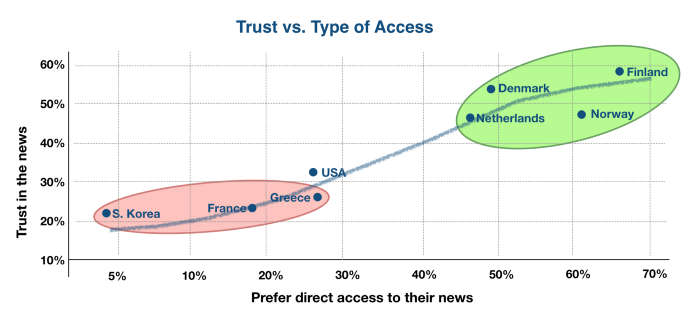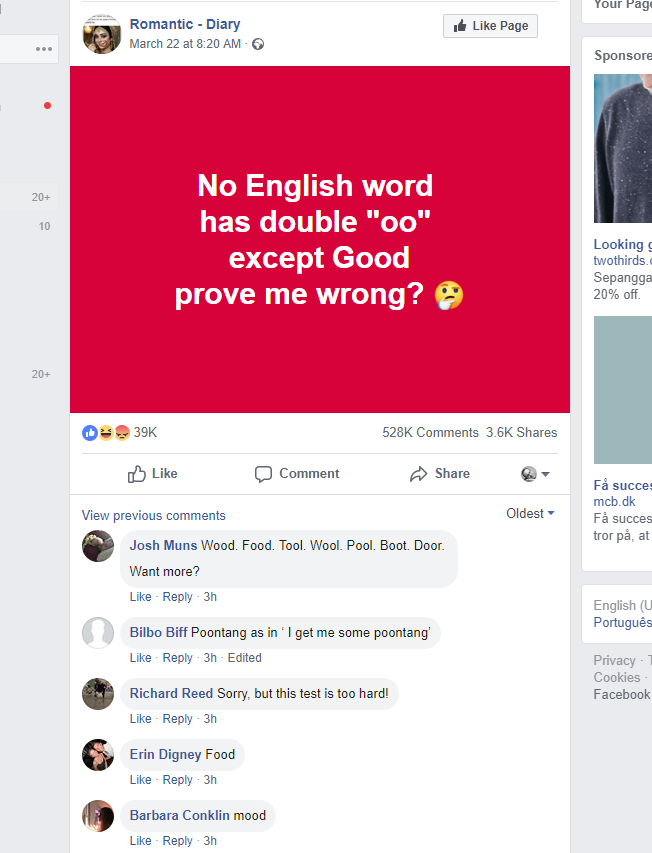First of all, I love the Monday Note. It's on my list of "primary" publication that I read everything from. But...
I have a few words about the latest article [thread]
First, that the distribution model directly correlates with trust in media. Generally, I would say that this is true. The more you can get people to connect with you directly, the more trust you also have.
In fact, I often see the opposite. There are three things to mention here.
In Denmark, percentage-vise, people use social media *more* than in France, so clearly more social media use does not correlate with less trust. If it did, countries like Denmark would have terrible trust scores compared to France.
It's journalistic malpractice.
@Twitter, where is that Edit button???







